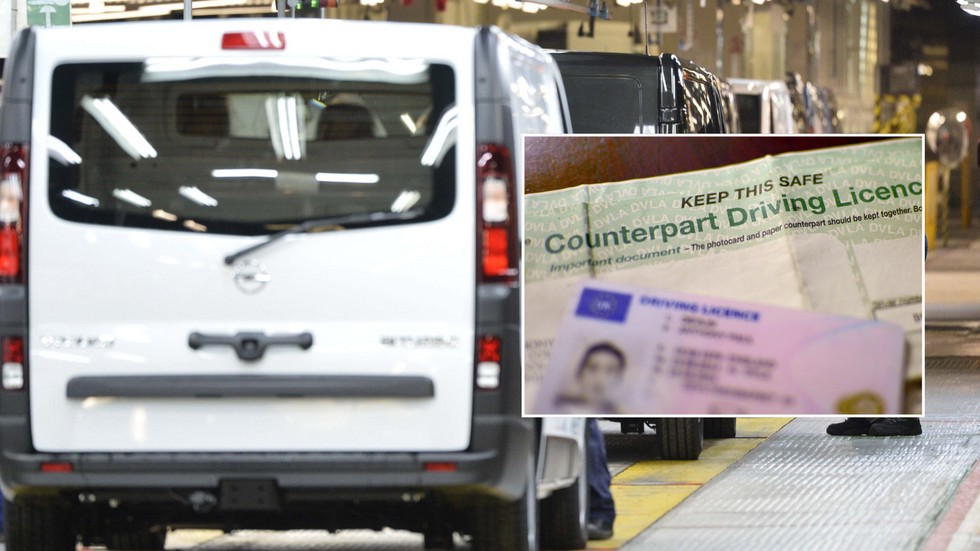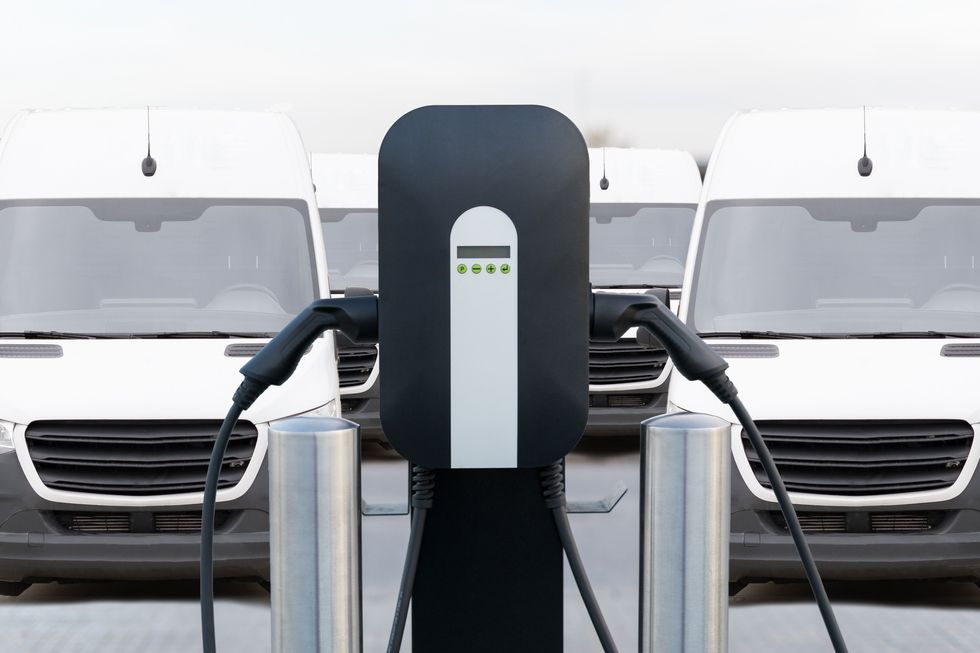



New driving licence rules have been introduced today making it easier for a certain vehicle type to switch to an electric model.
The changes follow a Government announcement of £120million funding package to support the transition to electric vehicles, including an extension of the plug-in van grant until April 2026.
The Department for Transport said it would remove red tape that has prevented businesses from switching to zero-emission vans by scrapping additional training requirements previously needed for drivers of electric vans.
The changes, announced by Future of Roads Minister Lilian Greenwood, hope to make it easier, faster and cheaper for drivers and businesses to adopt electric vehicles.

The changes impact standard category B licence holders of electric vans
PA
The measures form part of a broader £2.3billion Government investment to help the industry and consumers switch to electric vehicles as part of the Zero Emission Vehicle mandate. The mandate requires 28 per cent of new car sales to be electric by this year before moving to 100 per cent in 2035.
Today the DfT has laid secondary legislation before Parliament to enable standard category B licence holders to drive zero-emission vehicles up to 4.25 tonnes.
This change will apply to vans, minibuses, SUVs, trucks and any vehicle that can be driven up to 3.5 tonnes if they are petrol and diesel-powered.
The new rules account for the additional weight of electric vehicle batteries, bringing driving licence requirements for heavier electric vans in line with their lighter petrol and diesel equivalents.
The previous requirement meant drivers would need to complete five hours of additional training, but under the new changes this will be removed and subject to parliamentary approval will come into force this spring.
Fleets and van drivers will also continue to benefit from grants of up to £5,000 when purchasing larger electric vans up to 4.25 tonnes while grants of up to £2,500 remain available for smaller vans up to 2.5 tonnes.
The Government is also increasing support for other vehicle categories, with £4,000 available for zero-emission black cabs and a £500 grant for electric motorbikes.
The plug-in wheelchair-accessible vehicle grant cap has also been raised from £35,000 to £50,000, giving disabled passengers access to a wider range of vehicles.
Greenwood said: "From van drivers and businesses to drivers with accessibility needs, bikers and cabbies, today we are making it easier, faster and cheaper for people to switch to electric vehicles.
"By making the transition to zero emissions a success, we're helping to drive growth all over the UK, putting more money in people's pockets and rebuilding Britain to deliver our Plan for Change."
The Government is also consulting on further regulatory flexibility for zero-emission vans, proposing to simplify MOT testing requirements to prevent future roadblocks to net zero.
The UK's charging infrastructure continues to expand rapidly, with over 74,000 public charge points now available nationwide.

Labour has extended the plug-in grant for vans until 2026
GETTYNearly 20,000 new charge points were installed last year alone, with drivers able to choose from 21 new electric cars priced under £30,000, while one in three used electric vehicles costs less than £20,000.Home charging can save drivers up to £750 annually compared to petrol costs.
